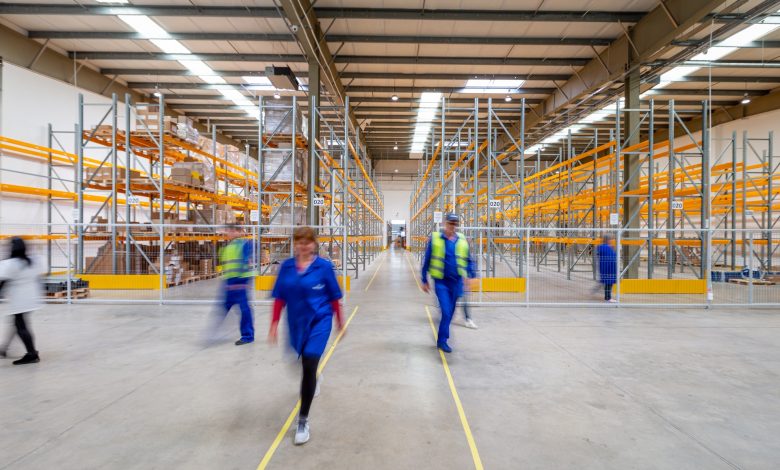How to Evaluate the Benefits of a Transportation Management System
Transportation Management System

A transportation management system (TMS), also known as a logistics network, is a platform that use computer software to help companies plan, implement, and maximize the efficient physical distribution of goods, enabling the transfer of goods in accordance with the customers’ orders.
A transportation management system is also called a distribution management system or a distribution management platform. It is a crucial part of any warehousing and transportation operation. It helps manage the flow of merchandise and supplies between the warehouse and the manufacturing and distributing sites.
Warehouse inventory management, procurement management, warehousing productivity management, and transportation stock management are among the areas that the TMS can monitor.
The transportation management system allows a manufacturer to obtain real-time data on all aspects of the operations in real-time, allowing for quick identification and adjustment to optimize performance. By using the web-based interface, it is simple for the company’s personnel to enter information into the applications, and in turn, save time and money.
The applications and data can be accessed from any location where an Internet connection is available, be it at the manufacturing site, the warehouse, or even the driver’s office. With the transportation management system. Fleet managers can easily obtain information about fuel surcharges, customs, driver error, breakage, theft, carrier rates side-by-side, etc. From there, the manager can make adjustments to optimize his or her operations. In other words, the TMS helps make the operations more efficient and cost-effective. Thereby allowing the manufacturer to save time and money.
With the transportation management system. Manufacturers can gain a complete picture of their supply chain, allowing them to make informed decisions on issues such as quality control, breakage, theft, delivery time, etc. In addition, the system also allows the carrier to track all shipments. Giving them the ability to understand and reduce the number of stops during deliveries.
As a service provider, shippers will have the ability to access the reports, giving them the necessary information to determine whether to increase or decrease the frequency of their trips. Not only that, the reports can also provide them with the ability to get accurate feedback on how their shippers are performing on a daily basis. This in turn, allows the shippers to set their own schedule and improve efficiency.
Besides monitoring the entire operations at the warehouse level, the warehouse management system also provide benefits to the shippers themselves. For instance, they will be able to gain access to detailed information regarding their shipment status. Making it easier for them to identify potential issues before they arise.
Other than the visible data that the warehouse management system provide. They also provide precise visibility into the operational activities of the warehouse. Permitting users to make informed decisions based on real-time data. The visibility offered by these systems gives shippers the ability to instantly spot problems. Inconsistencies in the performance of their shipping procedures and operations.
In addition to this, the detailed tracking information provided by the ERP software system can also be used to make strategic decisions. For instance, a seller can use the software to pinpoint areas of improvement.
Visibility and usability are not the only advantages offered by ERP-based tracking solutions. These advantages also make using the Single Platform Inventory (SPI) simpler and more effective. In essence, the Single Platform Inventory (SPI) helps the company streamline its entire supply chain procedures. Allowing it to improve efficiency and cut costs.
This is made possible by the introduction of a single platform for all related processes. Allowing suppliers and manufacturers to easily and effectively communicate with each other. By eliminating the need to build numerous systems. It allows manufacturers and suppliers to focus on improving their specific operations.
When integrating any transportation management system to your company. It is essential that you take time to consider all of your options. While this can offer many benefits to your business. Not all of them will suit your company’s unique needs and requirements.
There are several companies which offer the solutions, but if you want to get the most from the system. You need to get comprehensive quotes and discuss the system’s advantages with your representatives. After all, it is impossible to know which products and services will appeal to your company’s customers unless you have spoken to them. Thus, if you want to make the most out of your purchase. You must spend some time consulting with transportation optimization consultants. To get the best TMS available to enhance your company’s logistics and operations.
With the increasing demand for effective and efficient carriers, manufacturers are turning to reliable and adaptable transportation software development to help them make better decisions. Trucking and transportation logistics are rapidly improving. Having a comprehensive software solution that enables you to manage and analyze every aspect of your operation is essential for any manufacturing organization.
Fortunately, there are a number of highly reputable companies offering a variety of transportation optimization and load planning products. By getting in touch with a quality company.



